
Bitia Buenrostro was born on November 13th, 1984 in the tiny border town of Brownsville, Texas. Much of her youth was spent carpooling back and forth across the border into Matamoros, Mexico. Summers were full of youth group adventures, family dinners, and plotting her illustrious Quinceañera, a life event that rivals the importance of a wedding day to a little girl in Mexico.
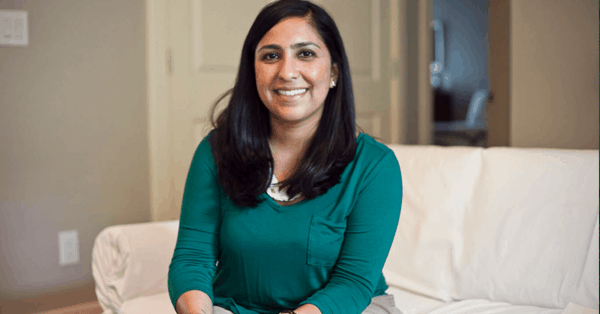 Just before she entered fifth grade, Bitia’s parents withdrew her and her little brother from the private school in Brownsville, to which they were commuting from Matamoros daily, and enrolled them in public school in Brownsville. But attending the public school required Bitia and her brother to live in Brownsville. So, Bitia began living with her grandparents during the week, and returning home to Mexico on the weekends.
Just before she entered fifth grade, Bitia’s parents withdrew her and her little brother from the private school in Brownsville, to which they were commuting from Matamoros daily, and enrolled them in public school in Brownsville. But attending the public school required Bitia and her brother to live in Brownsville. So, Bitia began living with her grandparents during the week, and returning home to Mexico on the weekends.
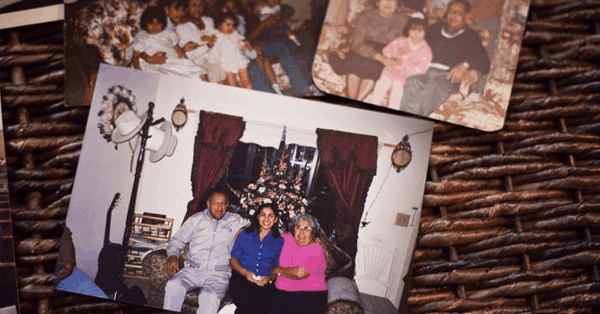 As if this transition wasn’t hard enough, she began to encounter resentment from her friends back home. “I’d be teased as the gringa since I was speaking English and spending so much time in Texas. This really hurt. All I wanted to do was identify with the people and the country I loved so much.”
As if this transition wasn’t hard enough, she began to encounter resentment from her friends back home. “I’d be teased as the gringa since I was speaking English and spending so much time in Texas. This really hurt. All I wanted to do was identify with the people and the country I loved so much.”
Then, the summer of 1999 happened.
“My parents told us we were moving back to Mexico! I was pumped because that meant I could go back home… It was the best summer of my entire life. It was also the last time I ever had a carefree, youthful summer,” Bitia recalled, tears rolling down her cheeks.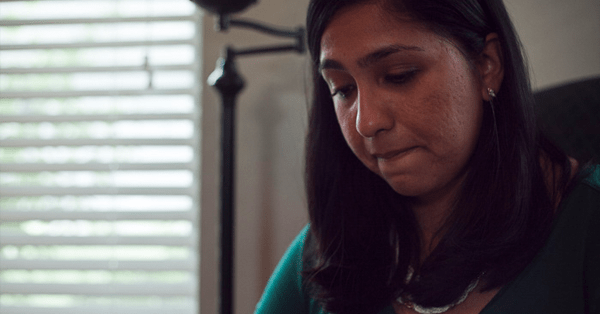
That summer, Bitia spent many days going on mission trips with her church friends and finishing up the final details of her Quince. Toward the end of the summer, Bitia’s grandmother died, and the funeral was held in Mexico. Returning from the funeral would be the last time for many years to come that Bitia would cross the border from Mexico.
A week after her grandmother’s funeral, Bitia’s parents broke the news that she and her little brother would not be going back to school in Mexico after all, and her long-awaited Quinceañera would be cancelled… oh, and the past 14 years had been a total lie.
***
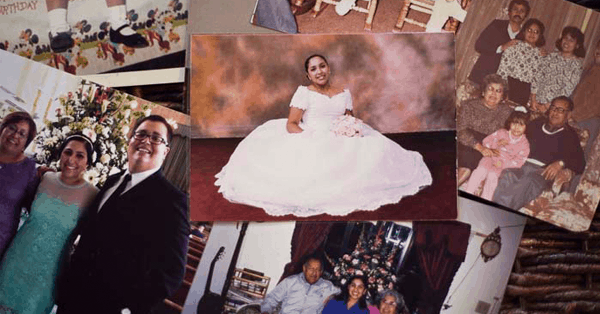
Bitia Buenrostro was born on October 20th, 1984 in the tiny border town of Matamoros, Mexico. And for 14 years, Bitia was an undocumented immigrant.
After Bitia was born, a family friend of the Buenrostros encouraged them to acquire false identification for their children. This family friend frightened the new parents into believing that the legalization process was too laborious and expensive. So, in a terrified effort to secure a better life and future in America for their babies, the Buenrostros obtained false identification.
“I distinctly remember this day, this moment. My parents took us to the only Luby’s in Brownsville. They began explaining the school thing again… Then the story started unfolding so rapidly,” Bitia remembered. “Everything slowed down. I was staring emptily into nothing. I was crying. I was shocked. My entire existence was a lie—down to the day I was born.”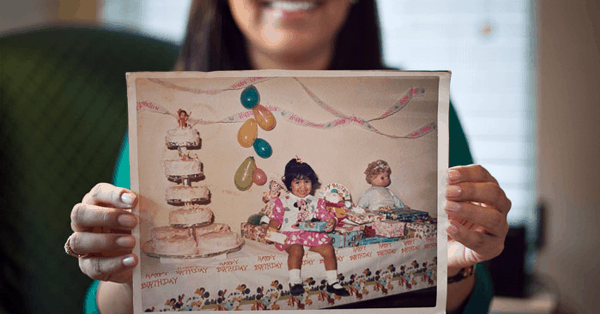
Bitia spent the next three years of her life quarantined in Texas, balancing both high school and immigration court. “It was the longest three years of my life. I was drilled every morning about my life, my grades, my hobbies, and why I deserved to be a citizen of the United States. Honestly? I didn’t care. I didn’t want to be a citizen. I hated Texas. I hated America. I was so angry and tired—I was constantly missing class for court,” Bitia recounted.
Behind in school, angry at the law, and devastated by the lack of mercy, Bitia found herself hopeless and lonely. And eventually, Bitia’s parents had enough of the legal rodeo, and they informed their immigration officer that they were going to self-deport and move back to Mexico.
“NO!” the immigration officer exclaimed. “You’re not taking your kids. Their future is not in Mexico. It’s here in the United States of America.”
And so the Author continued to write, though the characters had no idea what has going on.
The immigration officers, lawyers, and clerks working on the Buenrostros’ case were adamant that they continue the process. Why the change of heart? The family will never know.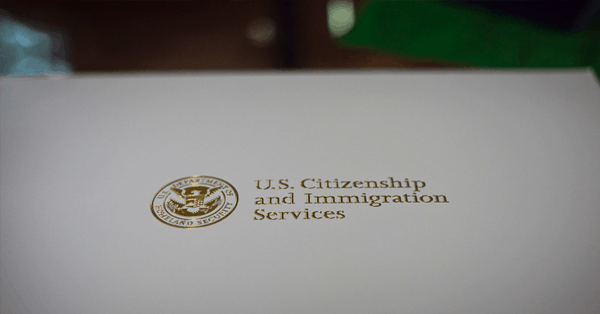
At the start of her senior year in high school, Bitia finally obtained her green card, and was then able to apply for college.
On the outside, the life her parents had always wanted for her was finally coming together. On the inside, Bitia still harbored resentment for the States and a perpetual longing for her deeply cherished home.
With a green card, one is eligible to apply for citizenship after being a U.S. resident for five years. After putting it off year after year, Bitia dropped her lingering grudges and applied for full citizenship in 2012.
Ironically, during the time she planned to take her citizenship test, Bitia was an AP United States history teacher at a high school in Austin. A predominantly Spanish-speaking, non-US citizen was attempting to motivate a bunch of teenagers to learn about the history of a country she had spent most of her life hating.
The Author of our stories obviously has a sense of humor.
“My citizenship ceremony was a beautiful example of God’s grace. We deserved to be blacklisted from this country, but the authorities—by his mastery—offered us another opportunity to stay. The longing we have for our worldly home is the same longing we have for heaven. My ceremony allowed me to finally understand that whether it’s Texas or Mexico—this is my temporary home. Heaven is my true home.”
***
Today, Bitia is no longer a teacher. Now, she is the Mentor Coordinator with RBI Austin—a ministry within the For the City Network that exists to renew baseball in the inner city of Austin. Bitia feels that had her parents never told her and her brother about their undocumented status, they would not have experienced humility in the same way. They likely would have grown up as normal, privileged people, incapable of understanding that everything is at the hands of God.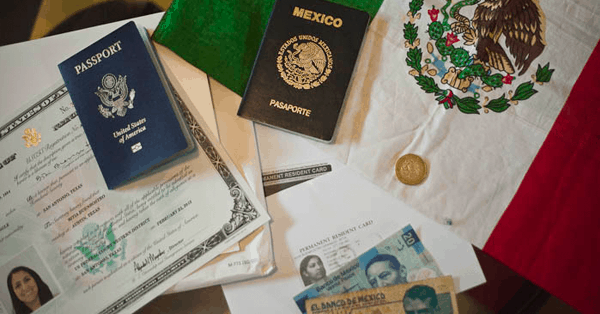
“Seeing how the Lord has used every single thing in my life to keep us in Texas is just… incomprehensible. It’s beautiful, really.” Bitia explains, “It’s beautiful that I can help the people from the country that I love so much transition into a new life in America. He redeemed my family, and redeemed our story so that I could be here, right now, teaching and serving the same marginalized immigrants that we once were. I can use my experience to encourage these people, and reassure them that the Gospel is real and God’s grace is far more than anything they could ever need.
“Fifteen years ago I was an angry, wailing teenager. Fifteen years later, I’m still crying, but I’m crying tears of joy. By God’s grace I am able to bless people in this capacity. My heart is so full after being empty for so long.”
The Austin Stone Story Team is a community of artists who tell stories of gospel transformation. We are photographers, writers, editors, filmmakers, and musicians on a common mission to use our gifts for His glory.
(By The Austin Stone Story Team. Discovered by e2 media network and our community — copyright is owned by the publisher, not e2 media network, and audio is streamed directly from their servers.)